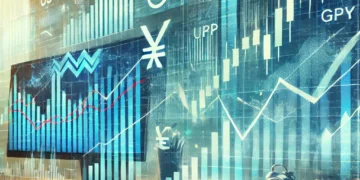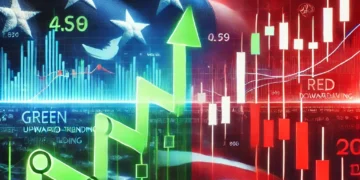Is Day Trading for You? Understanding the Landscape and Making an Informed Decision
Introduction
Day trading, the practice of buying and selling securities within the same trading day, has exploded in popularity thanks to greater accessibility to the markets through online platforms and decreased trading costs. This trading style attracts individuals looking to make quick profits based on short-term market fluctuations. However, day trading is not without its challenges and risks. This article aims to unpack what day trading involves, its demands on traders, and the potential benefits and drawbacks. By understanding these elements, you can better determine if day trading aligns with your financial goals, risk tolerance, and lifestyle.
What Is Day Trading?
Day trading involves executing short-term trades to capitalize on price movements of stocks, currencies, or commodities within a single trading day. Unlike investors who might hold positions for months or years, day traders start and end the day with no open positions, which means they are not exposed to overnight market movements. This form of trading requires a comprehensive understanding of market trends, news impacts, and technical analysis. Day traders often use leverage to amplify their trading capital, allowing for greater profit potential from small price changes; however, this also increases potential losses.
Pros and Cons of Day Trading
Before deciding if day trading is suitable for you, consider its advantages and disadvantages:
Pros:
- Potential for Quick Profits: Day trading can yield immediate results, with profits potentially realized the same day.
- No Overnight Risk: Since positions are closed by the end of the day, you’re not exposed to possible losses that might occur when the market is closed.
- High Liquidity and Leverage: Day trading involves high liquidity, facilitating easier entry and exit from positions. Using leverage, traders can trade larger amounts than they actually own.
- Excitement and Engagement: For those who thrive in fast-paced environments, day trading offers constant engagement with the markets, providing a dynamic and exciting career or hobby.
Cons:
- High Risk and Volatility: Day trading can be stressful due to the high volatility and the speed at which you need to make decisions.
- Time-Consuming: This style of trading requires your full attention during market hours, making it difficult to maintain as a part-time job.
- Capital Requirements: To be effective, day trading often requires a substantial amount of capital, especially to overcome commission costs and other trading fees.
- Emotional Stress: The rapid pace and potential for significant financial loss can lead to considerable emotional stress.
Is Day Trading Suitable for You?
To determine if day trading is a good fit, assess your financial situation, goals, and ability to handle stress and risk. Successful day traders are disciplined, can make quick decisions, and are comfortable with the possibility of losing money. They also need to be able to commit time to research and trading during market hours. If you find that day trading aligns with your personality and financial goals, and you are eager to learn more, consider pursuing formal education in this field.
An excellent resource is the course offered by TierOneTrading. They provide in-depth training that covers market analysis, trading strategies, and risk management, all of which are crucial for succeeding in the fast-paced world of day trading.
Day trading is a unique financial activity that offers both significant opportunities and considerable risks. It requires a blend of analytical skill, strategic foresight, and emotional fortitude. Whether you are looking for a full-time career or an engaging hobby, understanding the nature of day trading is crucial. If you decide that this type of trading suits your lifestyle and goals, investing in a comprehensive course like the one offered by TierOneTrading can equip you with the necessary tools and knowledge to start on the right foot. Remember, while day trading can be profitable, it demands respect for the market’s complexity and a commitment to continuous learning and adaptation.

























